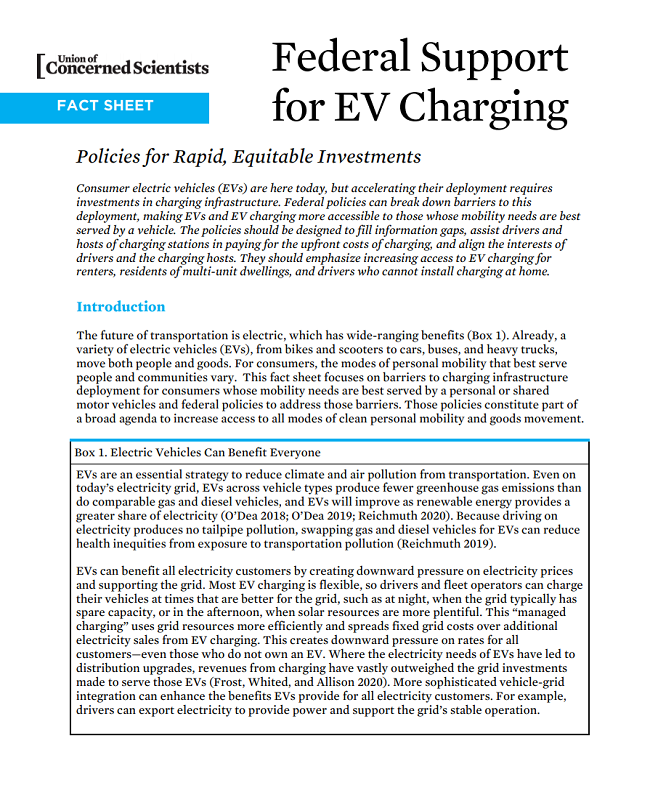Policies to increase EV adoption are an important component of a broad agenda to increase access to all modes of clean personal mobility and goods movement. Providing more households with access to electric vehicles is critical to addressing climate change and reducing the health risks of air pollution, but systemic barriers related to housing, income, and finance are stalling progress. Smart policy design can help overcome these barriers, accelerate EV adoption, and more equitably realize the benefits of vehicle electrification.
Federal policies should break down barriers to installing charging infrastructure at homes. Charging infrastructure policies should be designed to fill information gaps, assist drivers and locations hosting charging stations in paying for the upfront costs of charging, and align the interests of drivers and the charging station hosts. Those policies should emphasize increasing access to EV charging for renters, residents of multiunit dwellings, and drivers who cannot install charging at home.
Widespread electrification already makes sense for several classes of trucks and buses based on their operating characteristics, the range of today’s battery technologies, and similar if not cheaper ownership costs. Federal policies, including federal emissions standards, financial incentives, and investments in charging infrastructure, can accelerate the electrification of trucks and buses. These policies should center on improving air quality in communities most burdened by vehicle pollution.
This fact sheet focuses on barriers to charging infrastructure deployment for consumers whose mobility needs are best served by a personal or shared motor vehicles and federal policies to address those barriers. Those policies constitute part of a broad agenda to increase access to all modes of clean personal mobility and goods movement.
Preview the report here:
 Loading...
Loading...
More About this Resource
Publisher: Union of Concerned Scientists
Date: March 10, 2021
Type: Fact Sheet
Countries: United States
States: None
